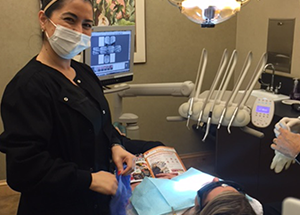 Dental implants are a popular and effective solution for people who need to replace one or more missing teeth. In fact, dental implant surgery has become one of the most common dental procedures performed today. However, before deciding to undergo dental implant surgery, it is important to have a good understanding of the procedure, its benefits, potential risks, and aftercare requirements. In this blog post, we will provide you with a comprehensive overview of dental implant surgery, to help you make an informed decision.
Dental implants are a popular and effective solution for people who need to replace one or more missing teeth. In fact, dental implant surgery has become one of the most common dental procedures performed today. However, before deciding to undergo dental implant surgery, it is important to have a good understanding of the procedure, its benefits, potential risks, and aftercare requirements. In this blog post, we will provide you with a comprehensive overview of dental implant surgery, to help you make an informed decision.
1. What Are Dental Implants?
Dental implants are small, screw-like posts made of titanium or other biocompatible materials that are surgically placed in your jawbone. The implants serve as artificial tooth roots, to which a dental crown or bridge can be attached to replace the missing tooth or teeth. Dental implants are designed to fuse with the jawbone over time, which makes them a stable and long-lasting solution for tooth replacement.
2. The Dental Implant Surgery Procedure
Dental implant surgery is typically performed under local anesthesia, which means that you will be awake during the procedure. After administering the anesthesia, the dentist or oral surgeon will create a small incision in your gum tissue and drill a small hole in your jawbone. The dental implant will then be placed into this hole and the incision will be sutured closed. Depending on your individual situation, you may need to undergo additional procedures, such as bone grafting or sinus lift, to increase the amount of bone in your jaw before the dental implant surgery can be performed.
3. Benefits of Dental Implants
There are numerous benefits of dental implants, including improved chewing and speech function, better oral health, enhanced appearance, and increased self-confidence. Unlike other tooth replacement options, such as dentures or bridges, dental implants are designed to be a permanent solution that will not require replacement. They are also easier to care for than other options, as they can be brushed and flossed like regular teeth.
4. Potential Risks and Complications
Like all surgical procedures, dental implant surgery carries some potential risks and complications. These can include infection, bleeding, nerve damage, implant failure, and even damage to neighboring teeth. However, the overall success rate of dental implant surgery is high, and most patients experience little to no complications.
5. Aftercare and Maintenance of Dental Implants
After the dental implant surgery, it is important to follow your dentist’s instructions for aftercare and maintenance. You may need to avoid certain foods and beverages for a period of time, and you will need to maintain good oral hygiene practices to prevent infection and ensure the longevity of your dental implants.
Dental implant surgery is a safe and effective solution for people who need to replace one or more missing teeth. While the procedure may seem daunting, it is important to keep in mind that the overall success rate of dental implant surgery is high, and most patients experience little to no complications. If you are considering dental implant surgery, we hope that this overview has provided you with a better understanding of the procedure, its benefits, potential risks, and aftercare requirements. Ultimately, consult with your dentist or oral surgeon to determine if dental implants are the right solution for your oral health needs.
760-633-3033
Location (Tap to open in Google Maps):
7730 Rancho Santa Fe Rd Ste 106
Carlsbad, California
92009






